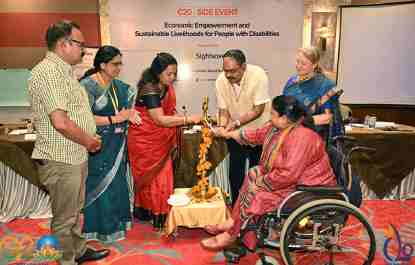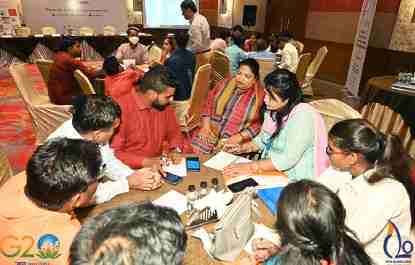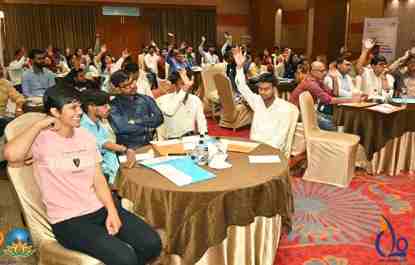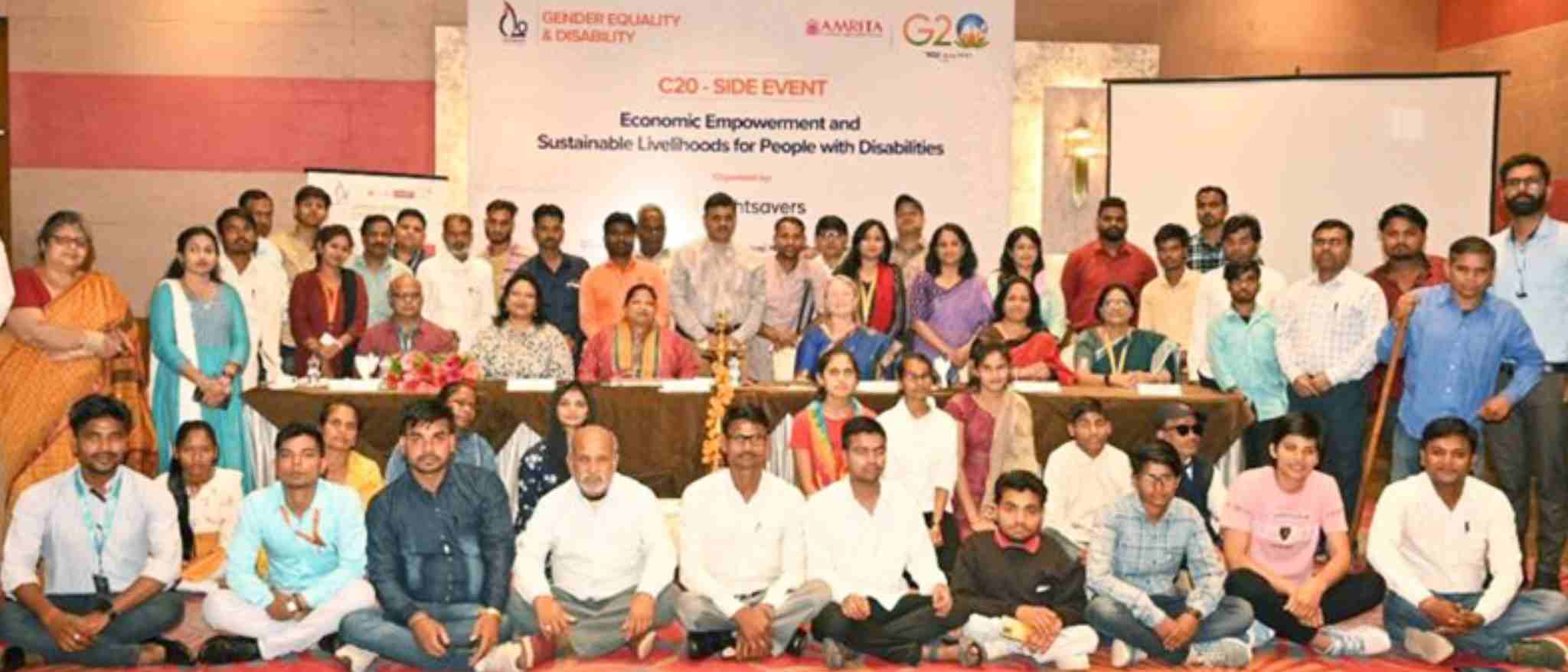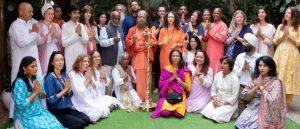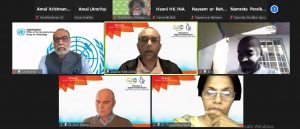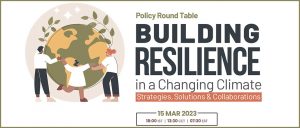A total of 64 participants attended the consultation.
The day long consultation identified the challenges and gaps OPD leaders face, the solutions thereof, related best practices emerging in the sector and policy recommendations to inform the C20 chair and G20 group. The consultation highlighted its day long discussion and brain storming on the following 5 agenda critical for disability policy considerations:
– Disability disaggregated data
– Adaptive social protection measures
– Education, employment & entrepreneurship space for PwDs
– Livelihood and employment opportunities for women with disabilities and
– Mainstreaming gender, disability and its intersectionality
Some of the main policy recommendations:
• Orientation of government departments, e.g. police, on disability related issues.
• Ensure greater participation of women with disabilities in government policy making process and different committees at workplaces
• Compulsory insurance of PwDs
• Free screening & treatment in govt./private hospitals
• Self- defence training for girls and WwDs
• Increase in social security pension based on inflation. Apart from Rs. 600/- pension, gratuity for PwDs above 60 years should be provided.
• Adequate laws to be framed should be framed by government to ensure ease of access to all educational and vocational training centres.
• Provision of free bus services to ferry children and persons with disabilities to facilities.
• Government should open training centres for PwDs, with reserved quota for women, where free of cost quality trainings can be provided on various vocational skills like mobile repair & electronics, fashion designing, apart from conventional skills like beauty parlours, candle making etc
• Linkages with banks and other financial institutions for provision of interest free soft loans for setting up entrepreneurial ventures. The loans should have long term repayment facility.
• Counselling of women with disabilities and their families on the need for getting out of their homes and reaching out into the world around them
• Orient family members and community on the need for educating women with disabilities
• Provide barrier free and disabled friendly workspaces for women with disabilities like ramps, railings, special toilets, tag tiles
• Establishing and/or relocating skills training centres near the place of living of WwDs so that they can gain self-confidence and promote their participation & easy access
• Encouraging participation of WwDs in local/ nearby women SHGs and accessing all government schemes and benefits
• Arranging transportation pick up and drop facilities from doorstep to workspace to encourage greater participation in workspaces
• If public transport facilities like buses don’t allow PwDs to board the buses or stop for them, note down the number of the bus, the route and inform the concerned official immediately
• Awareness generation on prevalent myths and misconceptions in society related to disabilities, & RPwDs Act through nukkad nataks should be undertaken
• Policy changes to increase enrolment of children with disabilities in schools
• Ensuring safety and security of women with disabilities in workplaces will encourage greater participation in workforce
• Concession/abolition of stamp duty on registration of agreement in marriage and/or live-in relationships
• Priority in accessing health care services under Ayushman Bharat Medical insurance scheme
• Should be identified as priority target groups by ASHA, ANM and other health workers/ volunteers for providing services and referral to higher facilities
• Regular awareness generation meetings on health and allied topics should be arranged for women with disabilities
• Ease of access to health care facilities through transportation and support of care givers
• Priority in reservations as beneficiaries of Awas Yojana (housing schemes)
• Skill based trainings & adult literacy classes for WwDs
• Ease of access in accessing & availing services of old age homes for WwDs
• Training of staff / care givers of PwDs in old age homes
• Policy changes to address care of single WwDS. Single women with disabilities should not be required to fill forms for admission into old age homes, nor should permission of their family members be sought
• Ease of access to cultural and religious places, as per the provisions of the RPwDs
Act & Sugamya Bharat Abhiyan
• Free and easy access to entertainment places like parks, historical monuments, cultural centres. Examples: In Khandwa district, the department of Social Justice building was inaccessible and PwDs faced a lot of difficulties in meeting officials and getting their work done. This was conveyed to the officials, whereupon an access audit was undertaken and the entire building was made accessible. Camps conducted for inclusion of names in Ayushman Card as beneficiaries in Katni.
